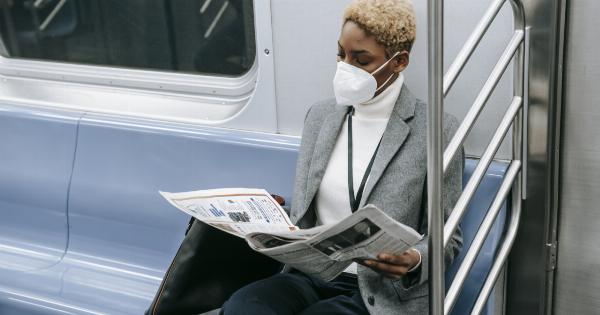In the current situation where the world is facing a pandemic, it has become crucial to take necessary precautions to protect ourselves from getting infected with COVID-19.
People with respiratory illnesses such as asthma and Chronic Obstructive Pulmonary Disease (COPD) are at a higher risk of getting seriously ill if they contract the virus. The Centers for Disease Control and Prevention (CDC) has recommended different measures to stay safe from COVID-19. This article will discuss how people with asthma and COPD can take precautions to stay safe from the virus.
Understand the Risks
People with respiratory illnesses such as asthma and COPD are at a higher risk of developing severe illness if they get infected with COVID-19.
This is because COVID-19 mainly affects the respiratory system, and if someone already has a weakened respiratory system, it can cause severe symptoms such as shortness of breath, coughing, and difficulty breathing. Therefore, it is vital to take the necessary precautions to stay safe from COVID-19.
Take Preventive Measures
The CDC has recommended various methods to prevent the spread of COVID-19, which includes:.
- Wear a Mask: Wearing a mask when going out in public areas can prevent the spread of the virus.
- Practice Social Distancing: Maintaining distance of at least six feet from other people is essential to reduce the risk of getting infected.
- Wash Your Hands: Washing your hands with soap and water for at least 20 seconds is highly recommended to kill the virus if it’s on your hands. If soap and water are not available, use a hand sanitizer that contains at least 60% alcohol.
- Clean and Disinfect: Clean and disinfect frequently touched objects and surfaces such as doorknobs, light switches, countertops every day to reduce the risk of spread.
Stay on Top of Your Medications
If you have asthma or COPD, keep a 30-day supply of your prescribed medication at home. During the COVID-19 pandemic, try to avoid running out of medication. Stay in touch with your healthcare provider and get the necessary medication refills.
It is also advisable to make sure that your inhaler is working correctly and has enough of the medicine.
Avoid Triggers
People with asthma or COPD should avoid triggers that can potentially cause asthma or COPD symptoms. Some triggers for asthma and COPD include cigarette smoke, air pollution, exercise, and respiratory infections.
In the situation of COVID-19, if a person with asthma or COPD gets infected, it can cause severe respiratory symptoms. Therefore, it is essential to identify triggers and avoid them.
Practice Good Hygiene
Good hygiene is essential to prevent the spread of COVID-19 and any illness.
People with respiratory illnesses such as asthma or COPD should practice good hygiene, such as coughing or sneezing in a tissue or elbow and washing hands frequently to prevent the spread of the virus.
Monitor Your Symptoms
It is vital to monitor your symptoms if you have asthma or COPD, especially during this pandemic. If you experience symptoms such as shortness of breath, coughing, or difficulty breathing, contact your healthcare provider immediately.
If someone in your household is sick or experiences symptoms of COVID-19, monitor your symptoms closely and seek medical attention immediately if symptoms worsen.
Be Prepared
During the COVID-19 pandemic, it is crucial to be prepared for emergencies. For example, prepare a bag with essential items such as hand sanitizer, disinfectant wipes, and a mask.
Identify alternate healthcare providers or hospitals that are providing emergency services. It is also advisable to have a plan in place for if you or someone in your household gets infected with COVID-19.
Conclusion
During these unprecedented times, it is essential to take necessary precautions to protect yourself and your loved ones from getting infected with COVID-19.
People with respiratory illnesses such as asthma or COPD should take additional precautions to stay safe. This includes wearing a mask, practicing social distancing, staying on top of medications, avoiding triggers, practicing good hygiene, monitoring symptoms, and being prepared for emergencies.
By taking these precautions, people with asthma or COPD can stay safe and healthy during the COVID-19 pandemic.































